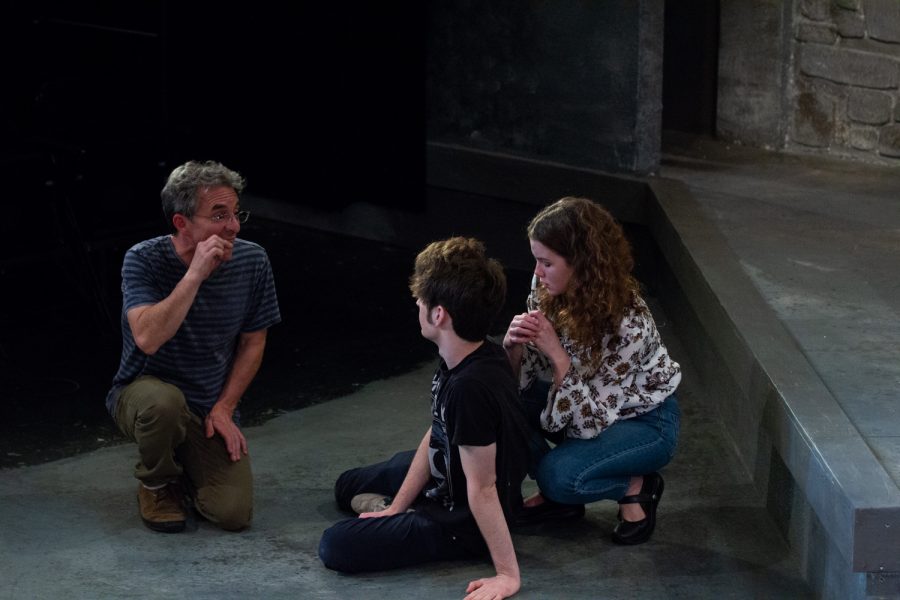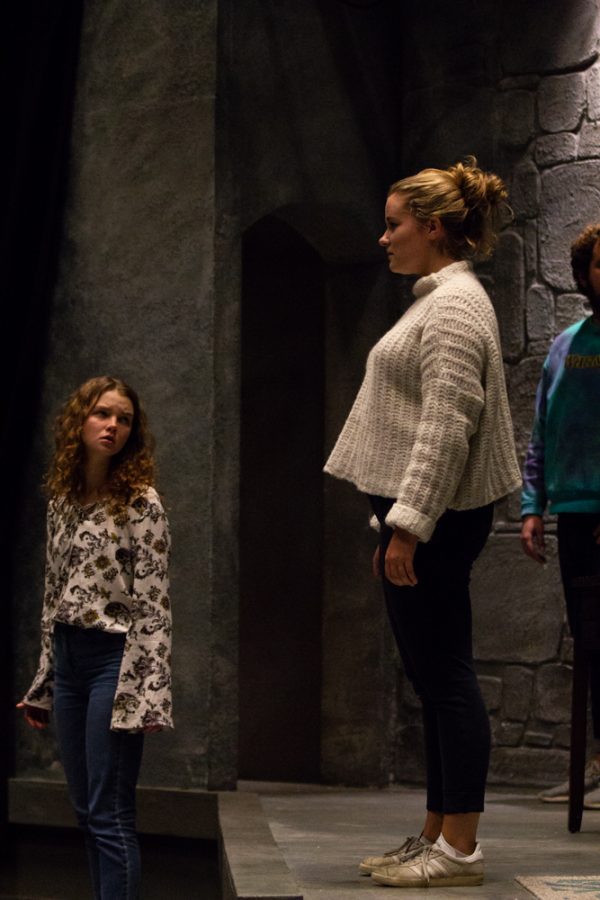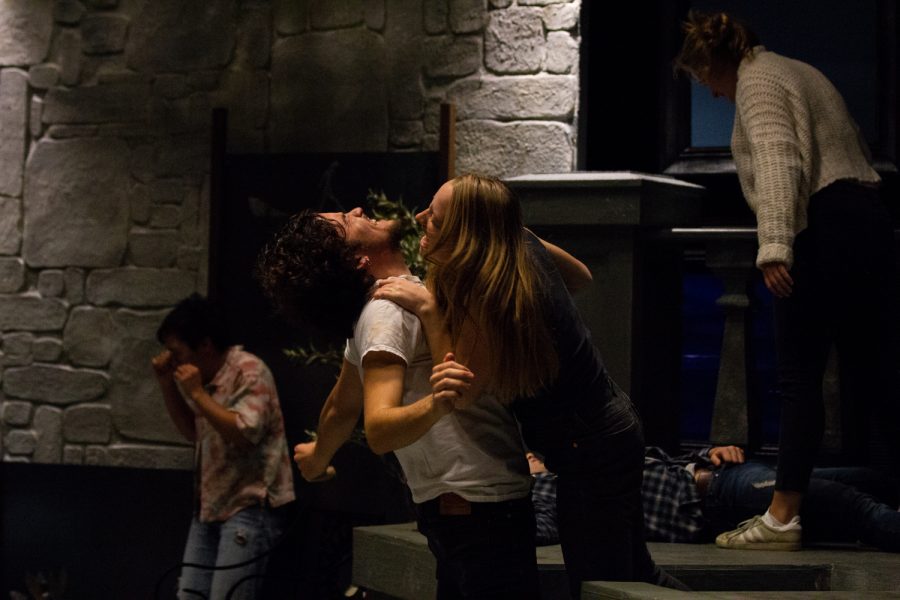A Big Show Called “Big Love”
October 25, 2018
“Big Love,” a play by Charles Mee and directed by Professor and Paul Garrett Fellow Christopher Petit, premiered this past weekend on the Alexander Stage. Audiences were engulfed by the tumultuous storyline, which celebrated women and addressed pertinent issues of gender politics and refugee crises.
Set in contemporary times, the play is based on Aeschylus’s “The Suppliants,” a Greek play written over 2,500 years ago. Despite its ancient roots, the play tackles timely issues in society and only seems to become more pertinent over time.
“Every night, it is like the day’s news is being echoed in the rehearsal room. It relates to the world we are living in now and what’s happening. The way men and women relate to one another, and how that is being questioned. There are also issues of refugees, gender and justice,” said Petit.

Director Chris Petit works with “Big Love” actors during a dress rehearsal.
Audience members are captivated by the polarizing character on stage— from the Italian grandmother imparting her age-old wisdom on the young brides while smashing fresh tomatoes onto the ground to the eclectic house servant performing an impromptu song and dance.
For graduating theatre majors Matt Schetina, Radoslav T. Bachvaroff and Dani Schlenker, the performance was in partial fulfillment of their Senior Project. These seniors were able to work with the script over the summer and the director in a more intimate way.
“There is a different language that I can talk to [the seniors] with, and a level of sophistication that as a teacher and director here I’m very accustomed to doing it. You have just a wide range of students and they have different needs to help them achieve their performed and my goal as a director is always to make the best thing that we can make and to make each of them be in a position where they can succeed that requires different things for different people,” said Petit.
Junior Emma Cooper also contributed as a dramaturg for the play. She worked with Petit to analyze the script and its Greek inspiration in order to modernize and help it appeal to present audiences.
The construction and deconstruction of gender stereotypes become a recurring theme throughout “Big Love.” For many, there appeared to be a challenge balancing the social archetypes of their characters with their complexity.
“This play explores the idea that there isn’t really an idea of an ‘us’ or a ‘them,’ there are just people who are put into situations that sometimes they don’t want to be a part of. Sometimes they make the right decision, and sometimes they don’t,” said Schlenker.
When speaking to senior Nick Sekits on his character Giuliano, he mentioned several of his struggles.
“[Giuliano] falls into these stereotypes while still being very real as a person and that’s how a lot of characters in this show are. You can put them into a lot of different categories but then they frequently break out of them,” said Sekits.
“Even smaller characters have so much to say. I see them on stage and I’m like, I know that person or I know someone who is similar to that or there are people in our government who are similar to that. Or there are people who have good intentions but sometimes they don’t do the right things because they don’t think they should, or they feel like they don’t have the agency to,” said Schlenker.
One also cannot leave this play without reflecting on the impressive set and creative use of space. Brides are running on the balconies around the perimeters of the stage space, climbing and moving boxes to and from the balcony to the stage floor. Characters are climbing up and down the lighting booth, as well as running around and evoking complete and utter chaos.
Although the elements of sheer entertainment during the performance may be difficult to relate to, the characters seem to be handpicked from reality. The audience sees the struggles of each character as they grapple with their notions of justice, ultimately provoking self-reflection. Audiences members begin to wonder “which character do I relate to in this performance?” “If I was in their shoes, what would I do?”
The play challenges the audience’s assumptions and judgment of characters and ultimately inspires self-reflection. When asked about what they would like audience members to take away after watching the show, many participants referenced love.
“I hope they take away big love, and that need to listen to one another,” said Petit bluntly.
“I want people to think about how to feel and give love. What it is to love in any capacity and its importance,” said Cooper. Evan Conklin
Evan Conklin
*Dani Schlenker is a Opinion Columnist for The Wire.





